
Arar: The Hidden Gem of Northern Saudi Arabia
Arar, the capital of the Northern Borders Region in Saudi Arabia, is a city that beautifully blends tradition and modernization. Known for its serene desert landscapes and rich cultural heritage, Arar offers a unique glimpse into the heart of Saudi Arabia's northern frontier. Visitors to Arar will find themselves enchanted by its tranquil atmosphere. The city is surrounded by vast stretches of desert, which provide a perfect backdrop for stunning sunsets and peaceful moments of reflection. The climate, though arid, becomes quite pleasant during the cooler months, making it an ideal destination for outdoor activities such as desert safaris and stargazing. Arar also boasts a number of historical sites and cultural landmarks that give insight into the region's past. The city’s museums showcase a variety of artifacts, from ancient relics to exhibits on the region's Bedouin heritage. Additionally, the local souks (markets) offer an authentic shopping experience, where visitors can purchase traditional crafts, spices, and textiles. The city's culinary scene is another highlight, with a range of local and regional dishes to savor. From hearty lamb dishes to flavorful rice meals, the food in Arar reflects the rich traditions of Saudi Arabian cuisine. For those seeking a more modern dining experience, there are also numerous cafes and restaurants offering a variety of international cuisines. Arar’s friendly locals add to the city's charm, often welcoming visitors with open arms and warm hospitality. Whether you're exploring its natural beauty, delving into its history, or enjoying its culinary delights, Arar promises a memorable and enriching experience for every traveler.
Local tips in Arar
- Visit during the cooler months (November to March) for the most comfortable weather.
- Experience a desert safari to fully appreciate the surrounding landscape.
- Explore local souks for unique souvenirs and traditional crafts.
- Try traditional Saudi dishes at local restaurants for an authentic culinary experience.
- Engage with locals who are known for their warm hospitality and friendliness.
Arar: The Hidden Gem of Northern Saudi Arabia
Arar, the capital of the Northern Borders Region in Saudi Arabia, is a city that beautifully blends tradition and modernization. Known for its serene desert landscapes and rich cultural heritage, Arar offers a unique glimpse into the heart of Saudi Arabia's northern frontier. Visitors to Arar will find themselves enchanted by its tranquil atmosphere. The city is surrounded by vast stretches of desert, which provide a perfect backdrop for stunning sunsets and peaceful moments of reflection. The climate, though arid, becomes quite pleasant during the cooler months, making it an ideal destination for outdoor activities such as desert safaris and stargazing. Arar also boasts a number of historical sites and cultural landmarks that give insight into the region's past. The city’s museums showcase a variety of artifacts, from ancient relics to exhibits on the region's Bedouin heritage. Additionally, the local souks (markets) offer an authentic shopping experience, where visitors can purchase traditional crafts, spices, and textiles. The city's culinary scene is another highlight, with a range of local and regional dishes to savor. From hearty lamb dishes to flavorful rice meals, the food in Arar reflects the rich traditions of Saudi Arabian cuisine. For those seeking a more modern dining experience, there are also numerous cafes and restaurants offering a variety of international cuisines. Arar’s friendly locals add to the city's charm, often welcoming visitors with open arms and warm hospitality. Whether you're exploring its natural beauty, delving into its history, or enjoying its culinary delights, Arar promises a memorable and enriching experience for every traveler.
When is the best time to go to Arar?
Iconic landmarks you can’t miss
Women Market
Explore the Women Market in Arar, a vibrant flea market showcasing local artisans, traditional crafts, and delicious local delicacies, rich in culture.
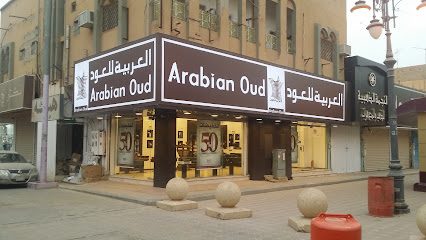
Valley Mall
Explore Valley Mall in Arar for a unique shopping experience filled with dining, entertainment, and a taste of modern Saudi culture.
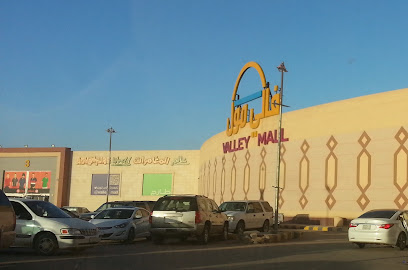
Le Park Concord Arar
Discover luxury and comfort at Le Park Concord Arar, the ideal hotel for your stay in the heart of Saudi Arabia's vibrant city.

Al Bustan Crown Hotel 2
Discover comfort and convenience at Al Bustan Crown Hotel in Arar, Saudi Arabia. Experience local hospitality and explore vibrant attractions nearby.

Abdullah Bin Abdul Aziz Bin Musaed Mosque
Experience the serene beauty and architectural splendor of Abdullah Bin Abdul Aziz Bin Musaed Mosque in Arar, a true gem of Islamic heritage.
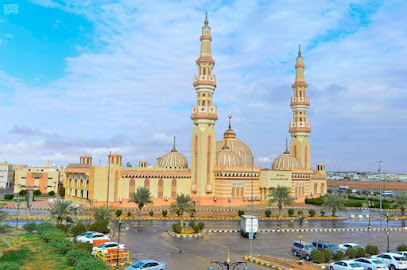
سفوري لاند | Safforiland
Experience the thrill and joy at Safforiland, Arar's premier amusement park, with thrilling rides, games, and family-friendly entertainment.
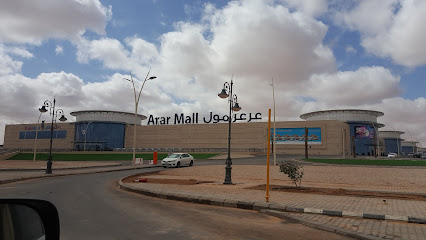
متنزه و ممشى المساعدية
Discover the beauty and tranquility of AlMusaidiyah Park in Arar, a perfect escape for relaxation and family outings amidst lush greenery.
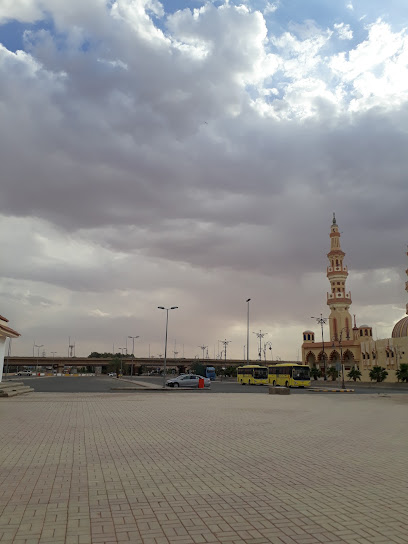
Eid Prayer Area
Experience the spiritual essence of Arar at the Eid Prayer Area, a serene mosque celebrating community and culture.
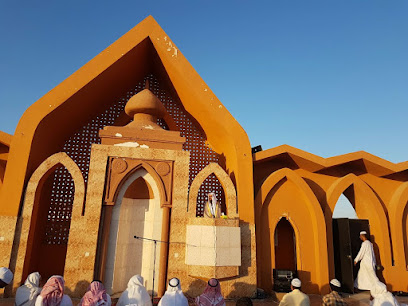
Arar Tower
Explore Arar Tower, a historical landmark that showcases the rich heritage and stunning architecture of Arar, Saudi Arabia, offering breathtaking views and cultural insights.
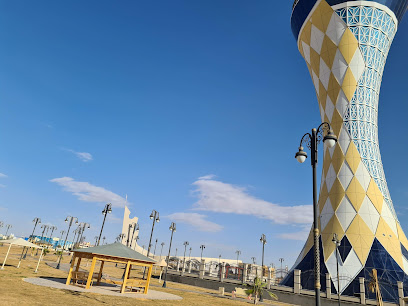
منتزه معيله البري
Discover the beauty of Al-Muaylah Park in Arar, a peaceful retreat for nature lovers and families seeking relaxation amidst lush landscapes.
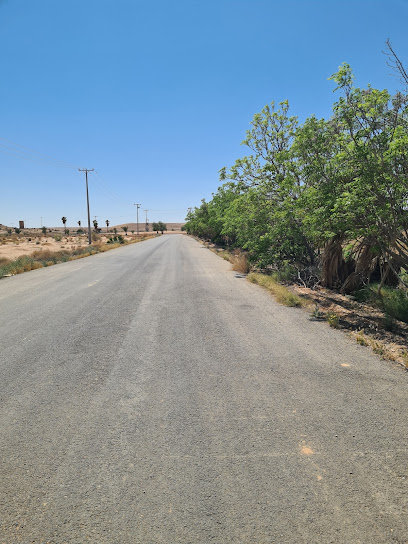
برج الشمال
Explore the rich cultural heritage of Saudi Arabia at برج الشمال, a national museum showcasing fascinating artifacts and historical exhibitions.
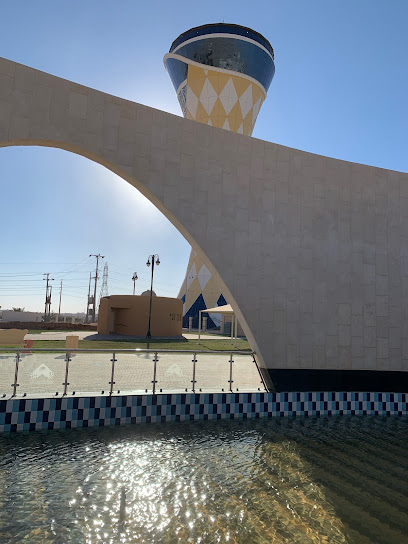
نافورة الخمسين
Explore the enchanting نافورة الخمسين in Arar, a stunning fountain surrounded by beautiful gardens, perfect for relaxation and photography.
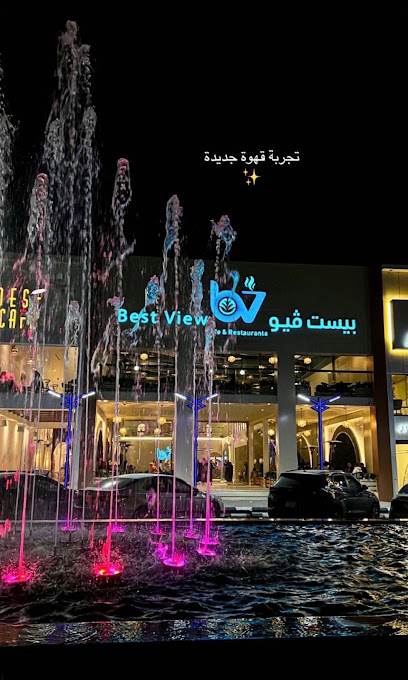
مجسم الكره الأرضية
Explore the Earth Globe Museum in Arar for an unforgettable educational journey through our planet's geological wonders and history.
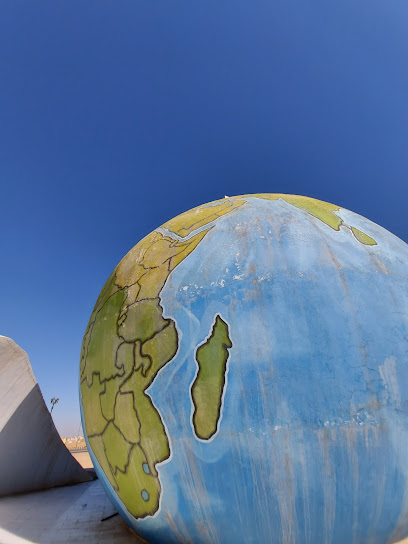
محطة قديمه مهجوره من ايام التابلاين
Explore the historic Al-Hegrah Station in Arar, a captivating landmark that reflects Saudi Arabia's rich heritage and architectural beauty.
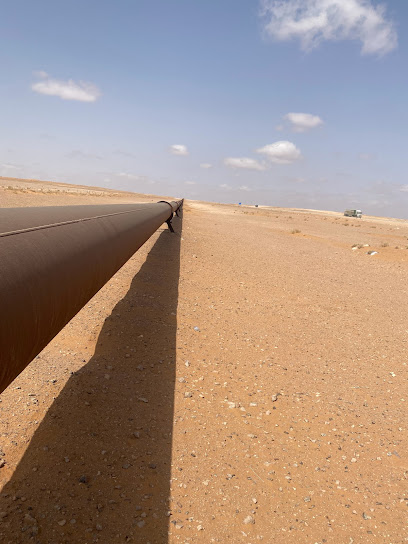
Museum arar - northern border
Explore the Museum Arar in Alkhalij for a deep dive into the local history and cultural heritage of northern Saudi Arabia.
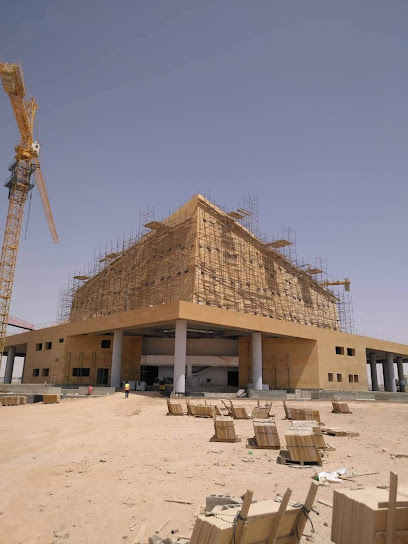
Unmissable attractions to see
Riyadh Zoo
Explore Riyadh Zoo, a premier family-friendly attraction in Al Malaz featuring diverse wildlife, lush landscapes, and educational experiences for all ages.
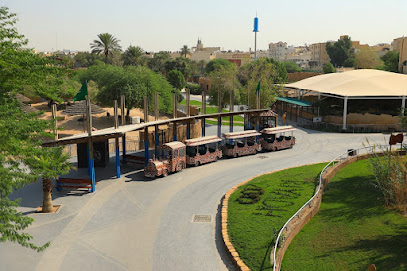
King Abdullah Park riyadh
Experience the natural beauty and vibrant atmosphere of King Abdullah Park, a premier urban oasis in Riyadh offering relaxation and recreation.
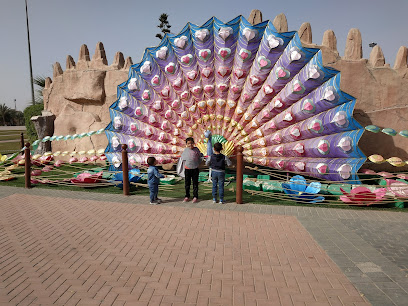
سفوري لاند | Safforiland
Experience the thrill of Safforiland in Arar, Saudi Arabia – an amusement park filled with fun rides, games, and family-friendly attractions for all ages.
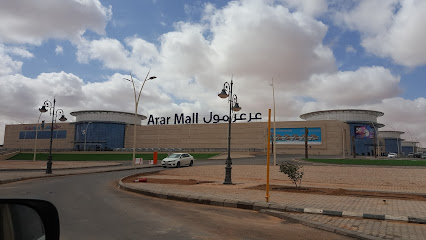
متنزه و ممشى المساعدية
Discover the serene beauty of Almusaidiyah Park in Ash Sharqiyyah, a perfect escape for families and nature lovers alike.
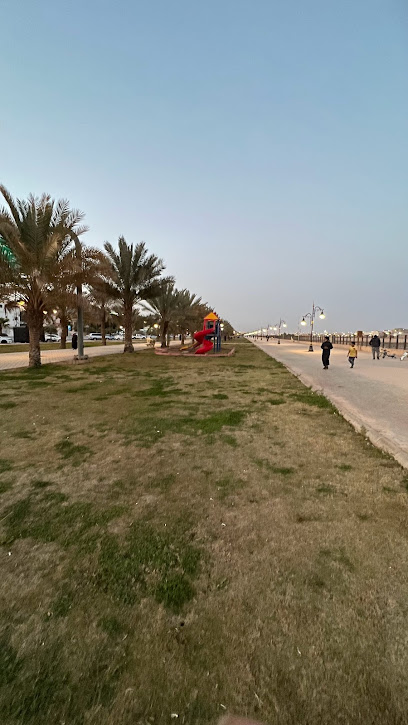
Garden walk
Discover the beauty of nature at the Garden Walk in Arar, a peaceful retreat filled with vibrant flora and serene walking paths.
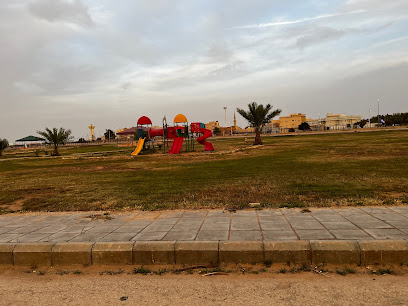
منتزه معيله البري
Explore Al-Bari Park in Arar, a peaceful retreat featuring lush landscapes, scenic paths, and a welcoming atmosphere perfect for relaxation and recreation.
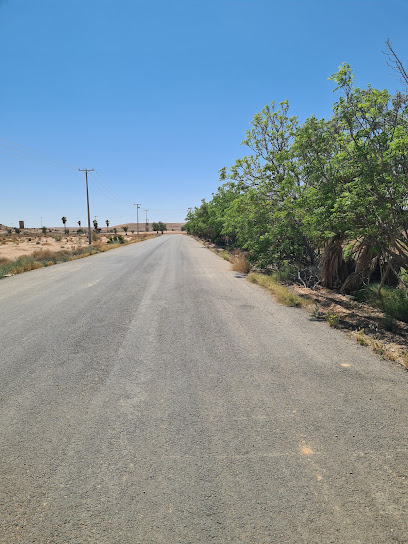
نافورة الخمسين
Discover the stunning نافورة الخمسين in Arar, Saudi Arabia – a beautiful fusion of art, culture, and relaxation for every traveler.
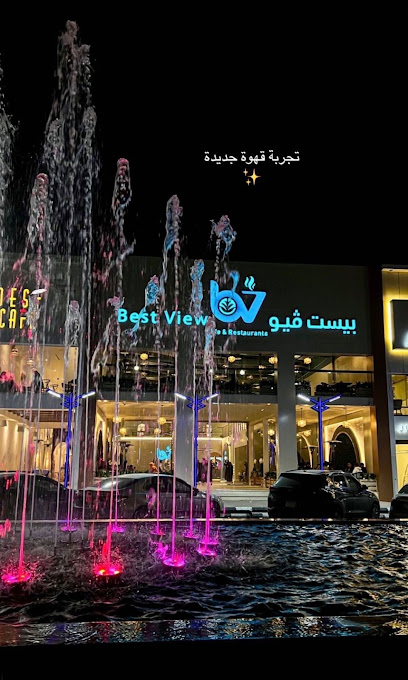
مجسم الكره الأرضية
Visit the Geographical Museum in Al Arar to explore the Earth's unique geological features and gain insight into our planet's diverse landscapes.
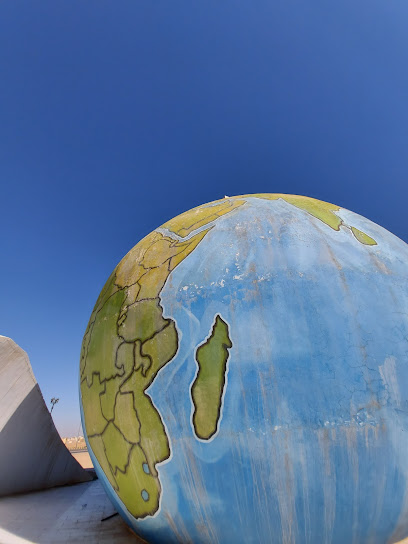
Museum arar - northern border
Discover the cultural tapestry of northern Saudi Arabia at the Museum Arar, where history comes alive through captivating exhibits and local artifacts.
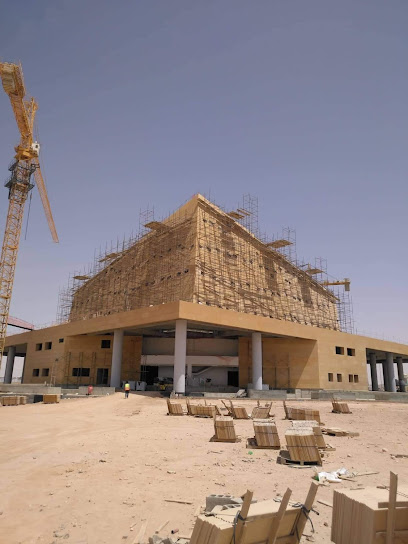
Essential places to dine
Noorseen
Savor authentic Indian cuisine at Noorseen in Arar—where rich flavors meet a warm ambiance for an unforgettable dining experience.
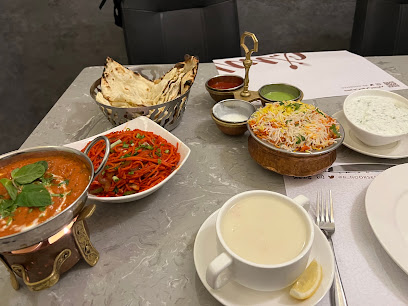
مطعم بهارات
Discover the rich flavors and vibrant dishes of Indian cuisine at مطعم بهارات in Arar - where every meal is a celebration.
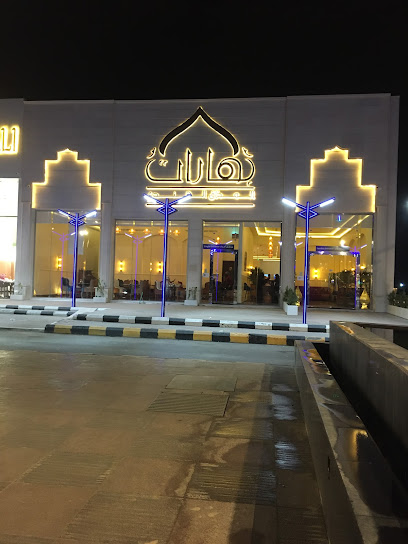
مطعم أكاليل
Experience fine dining at مطعم أكاليل in Arar – where traditional flavors meet modern elegance in every dish.
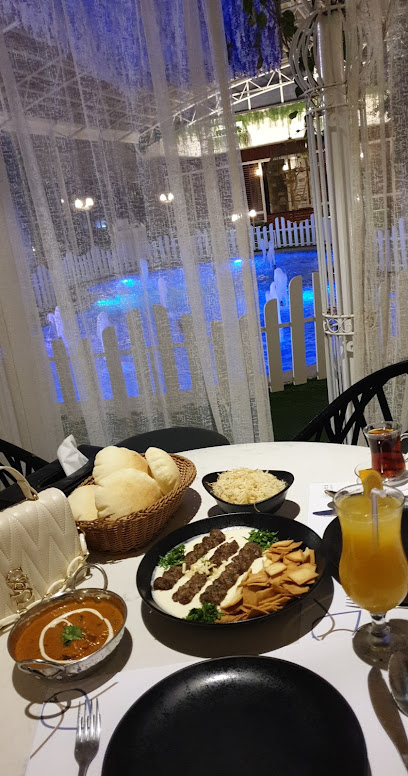
Al Romansiah Restaurants Arar
Experience authentic Middle Eastern cuisine at Al Romansiah Restaurants Arar - where flavor meets tradition in every bite.
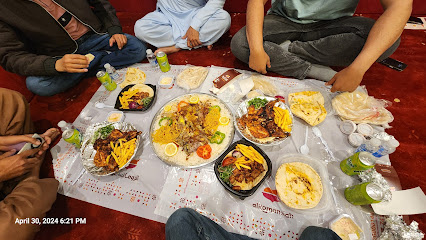
مطعم القصر
Experience authentic Middle Eastern cuisine at مطعم القصر in Arar - where every dish tells a story.
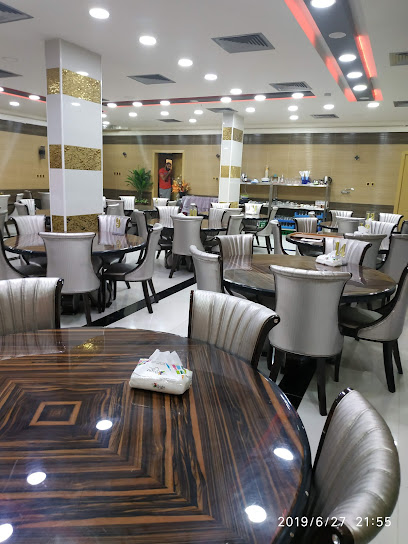
مطعم أماسي
Discover the rich flavors of traditional cuisine at مطعم أماسي in Almushrif – a culinary haven for tourists seeking authentic dining experiences.
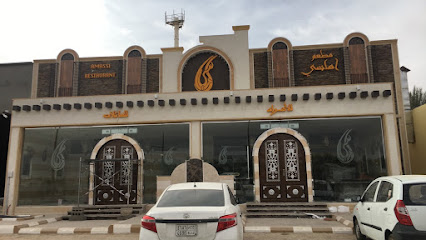
McDonald's
Discover McDonald's in Arar - where global flavors meet local charm in a fast-food favorite.
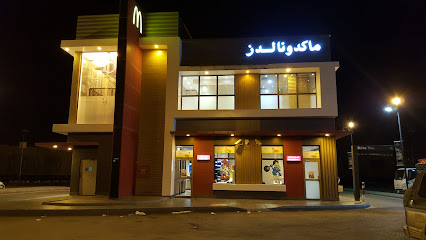
Mazaya
Discover Mazaya in Arar: A perfect blend of fresh seafood and exquisite Indian flavors awaits you at this charming restaurant.
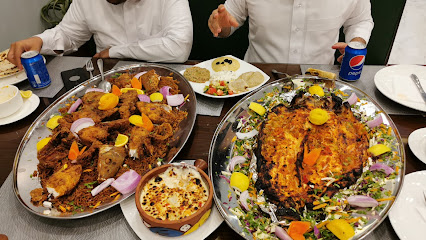
Canary Bukhari Restaurant
Experience authentic Afghan cuisine at Canary Bukhari Restaurant in Arar – delicious flavors that transport you to another world.
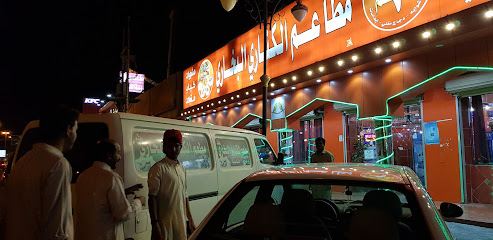
Hijaz Mandi
Discover the authentic taste of Middle Eastern cuisine at Hijaz Mandi in Arar—where tradition meets flavor.
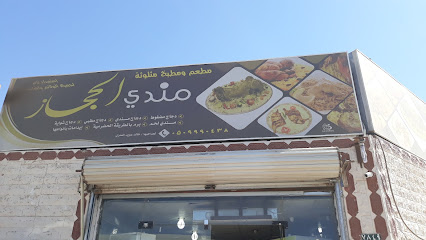
فروج الطائف
Experience delicious chicken dishes at فُروج الطائف in Al Salhiyah - a fast food haven for every palate.
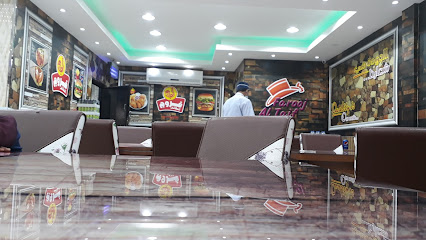
مطعم توباز
Discover authentic flavors at مطعم توباز in Arar – where tradition meets modern culinary excellence.
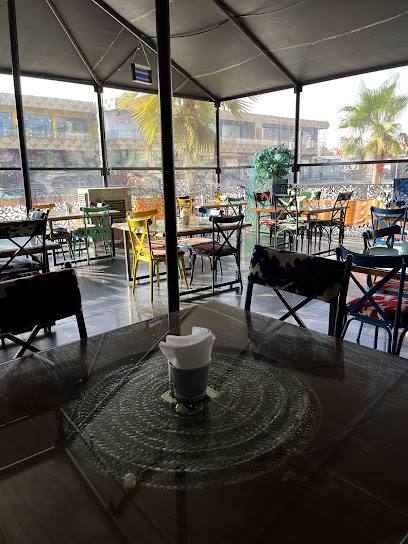
مطعم روعة الخيالة
Experience the authentic flavors of Saudi cuisine at مطعم روعة الخيالة in Arar – where every meal is a celebration of local tradition.
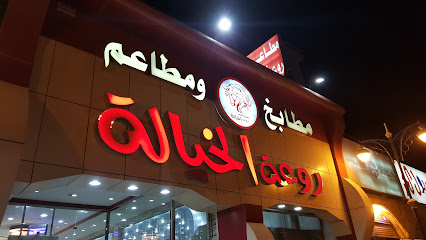
مطعم ليلاس / LILAS
Discover fine dining at مطعم ليلاس / LILAS in Arar – where exquisite flavors meet elegant ambiance for an unforgettable culinary adventure.
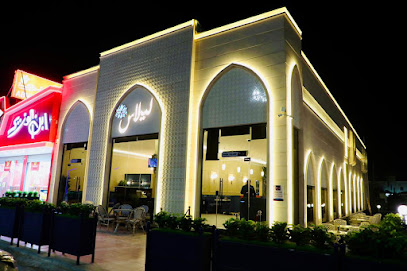
Krok
Discover Krok in Arar for an unforgettable gourmet hamburger experience crafted with quality ingredients and served in a welcoming atmosphere.
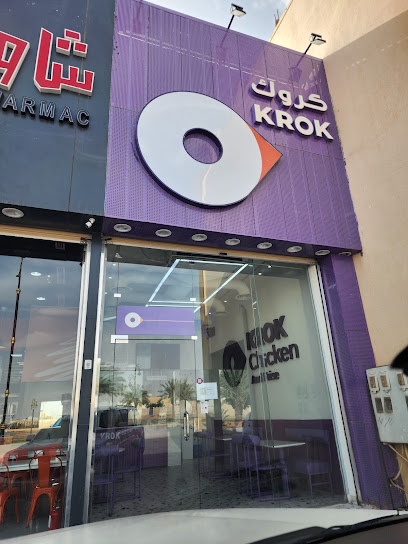
Markets, malls and hidden boutiques
Valley Mall
Valley Mall in Arar: A shopping paradise offering diverse retail options, delightful dining experiences, and a serene atmosphere for all visitors.
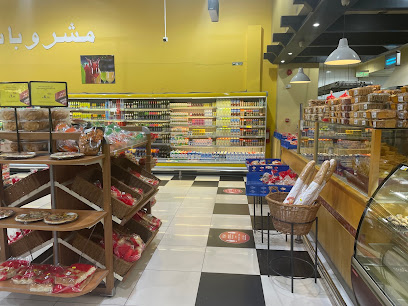
BOULEVARD
Discover a blend of shopping, dining, and entertainment at Boulevard in Arar, where local culture meets modern retail.
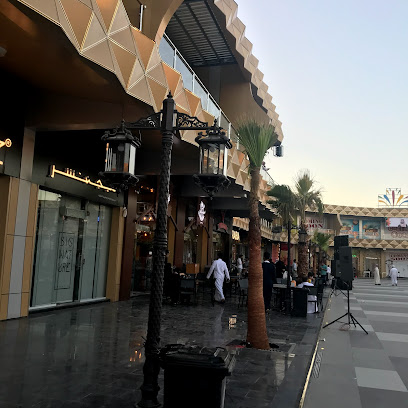
City Flower Department Store
Explore the City Flower Department Store in Arar for a unique shopping experience filled with local charm and a diverse range of products.
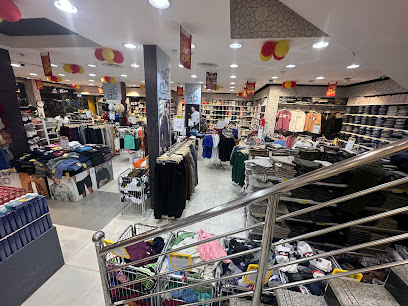
NCT
Discover the latest trends at NCT, Arar's premier clothing store, offering a unique blend of style and quality for every fashion enthusiast.
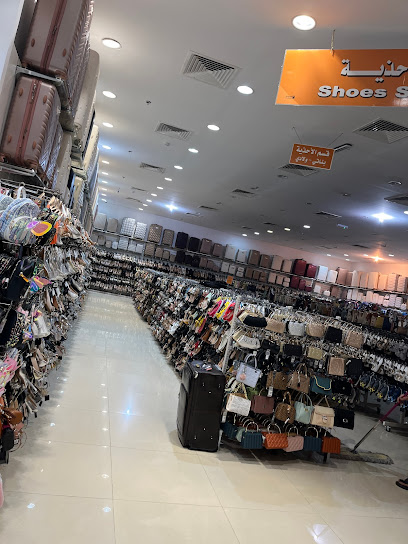
مجمع القارات عرعر
Discover Majma Al-Qarat in Arar: A shopping paradise with diverse retail, dining, and entertainment options for an unforgettable experience.
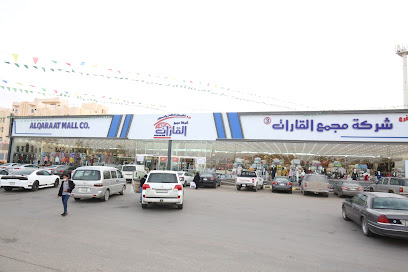
Samena shopping center
Experience the excitement of shopping and dining at Samena Shopping Center in Arar, a must-visit destination for all tourists.

Centrepoint
Discover the ultimate shopping experience at Centrepoint in Arar, where style meets affordability in a vibrant department store atmosphere.
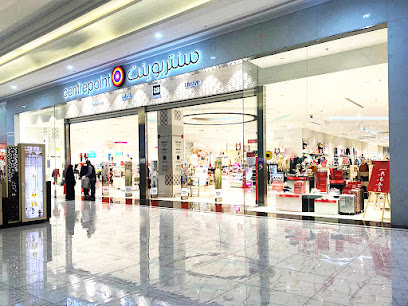
بوكس لاند 2
Experience the best of gift shopping and party supplies at Box Land 2 in Almansuriyah, where creativity meets convenience.
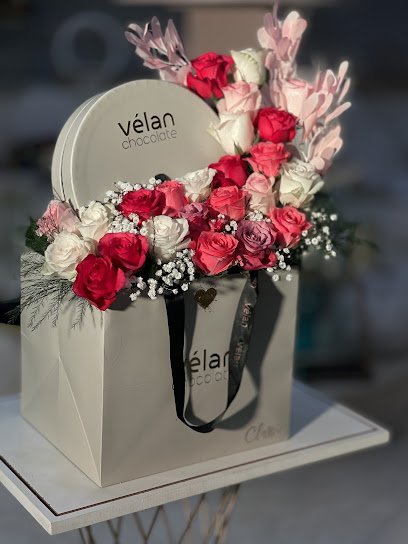
FACES - Othaim Mall, Arar
Explore a luxurious selection of perfumes at FACES in Othaim Mall, Arar - where scent meets elegance and individuality.
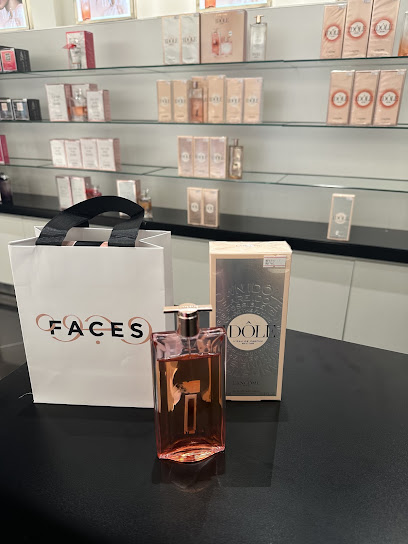
تومينات سما نوف
Explore Tuminat Sama Nov: A vibrant supermarket in Arar offering local and international products for an authentic shopping experience.
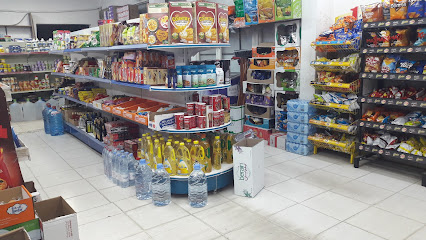
Orchid - اوركيد للورود و الهدايا و المناسبات
Explore Orchid, the premier gift shop in Arar, offering stunning floral arrangements and unique gifts for every occasion.
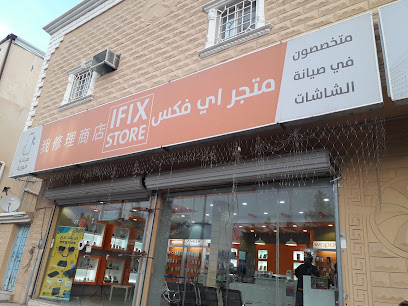
ORANGE BED & BATH
Explore a wide selection of quality home improvement products at Orange Bed & Bath, your go-to destination for stylish bathroom supplies and bedroom furniture.

REDTAG
Explore REDTAG in Arar for an eclectic mix of clothing styles, from chic women's wear to trendy men's outfits and adorable kids' apparel.

تموينات فرسان الصحراء
Discover authentic local groceries and snacks at تموينات فرسان الصحراء, a grocery store in Arar that showcases the region's culinary delights.
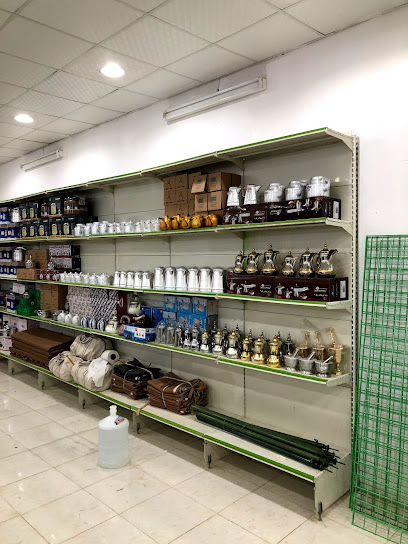
محل المشعلMahal misal
Explore the stylish collections at Mahal Misal, Arar's premier clothing store, blending modern trends with local culture for an unforgettable shopping experience.
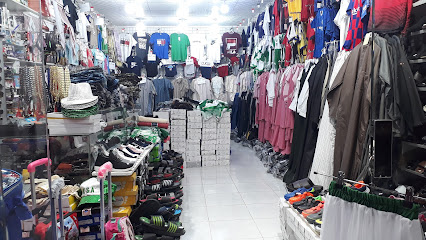
Essential bars & hidden hideouts
Al Romansiah Restaurants Arar
Experience the essence of Middle Eastern cuisine at Al Romansiah Restaurants in Arar, where tradition meets flavor in every dish.
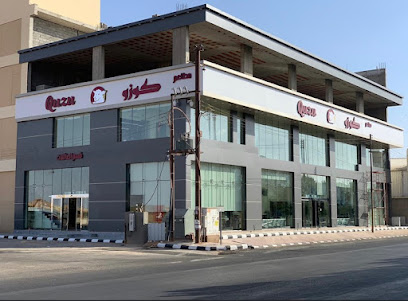
مطعم القصر
Experience authentic Saudi flavors at مطعم القصر, a culinary gem in Arar known for its welcoming atmosphere and delicious local cuisine.
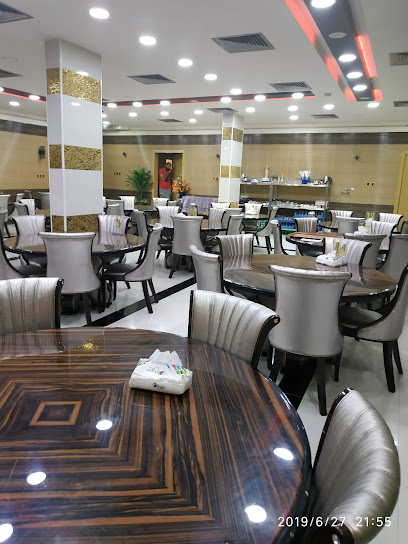
McDonald's
Experience the familiar taste of fast food at McDonald's in Arar, where quick service meets a welcoming atmosphere for every traveler.
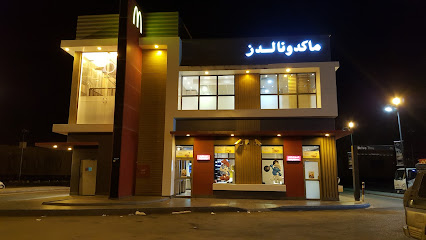
Tobaz
Discover the flavors of Arar at Tobaz Lounge, a restaurant and coffee shop offering a perfect blend of traditional and contemporary dishes in a cozy setting.
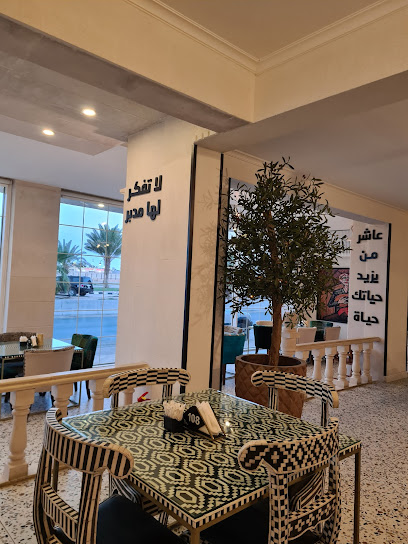
براونيز لاونج
Discover the sweet haven of براونيز لاونج in Arar, where delectable desserts and a cozy atmosphere await travelers seeking indulgence and relaxation.
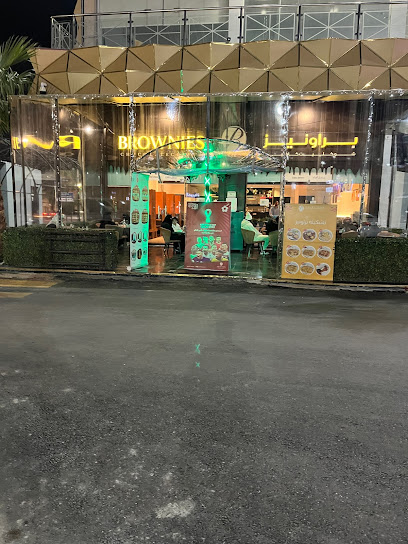
قافية لاونج
Discover the perfect blend of relaxation and sophistication at قافية لاونج in Arar, a must-visit destination for tourists seeking comfort and quality.
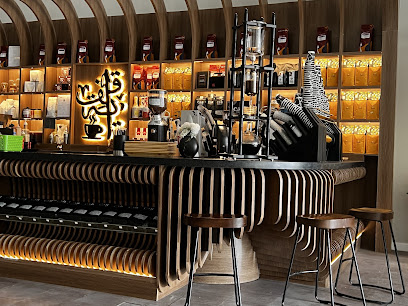
مطعم موزه غير
Delight in the vibrant fast food scene at مطعم موزه غير in Al Salhiyah, where local flavors meet quick service for an unforgettable dining experience.
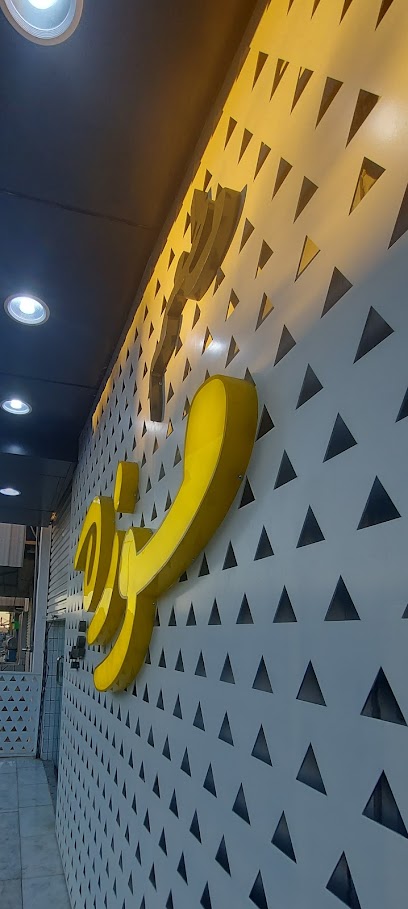
AMEEN BROASTED
Savor the unique broasted chicken flavors at Ameen Broasted, a delightful fast food gem in Arar, Saudi Arabia.
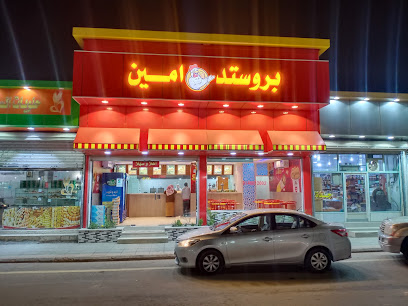
Mom’s Kitchen
Experience the authentic tastes of Saudi Arabian cuisine at Mom's Kitchen in Arar, where tradition meets flavor in every dish.
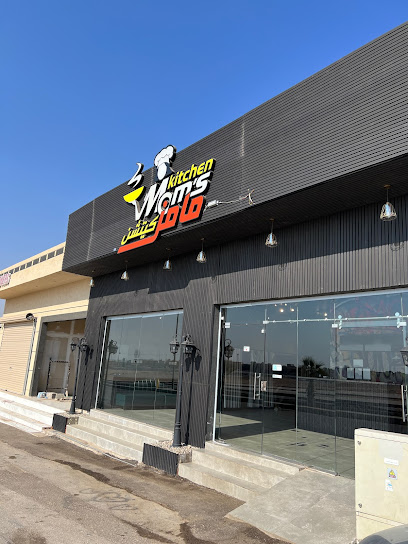
Trivali Coffee
Discover Trivali Coffee in Almabarakiyah, Arar - a cozy café perfect for savoring exceptional brews and enjoying a relaxed atmosphere.
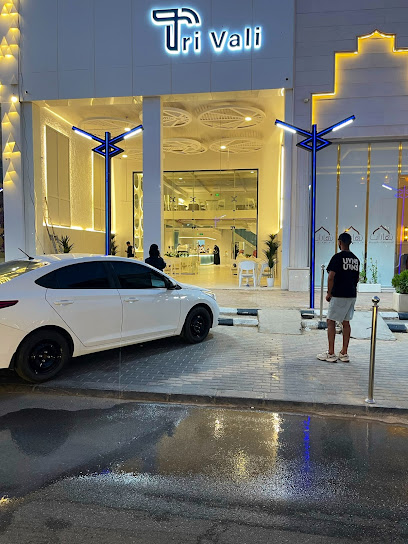
Deira Restaurant
Experience the rich flavors of Saudi Arabia at Deira Restaurant, a culinary delight in Arar offering a blend of local and international dishes.
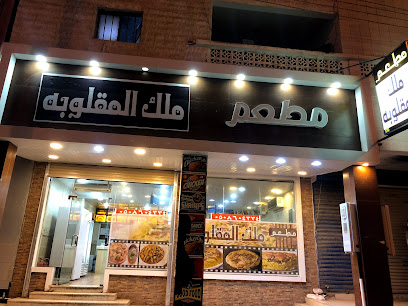
برجر شيتا CHEETAH
Discover the delightful taste of gourmet burgers at برجر شيتا CHEETAH, a culinary hotspot in Arar, Saudi Arabia, perfect for food lovers.
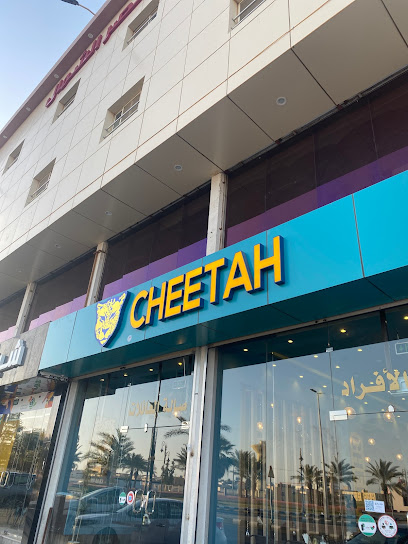
Santorini Lounge
Experience the perfect blend of comfort and elegance at Santorini Lounge in Almabarakiyah, the ideal retreat for relaxation and socializing.
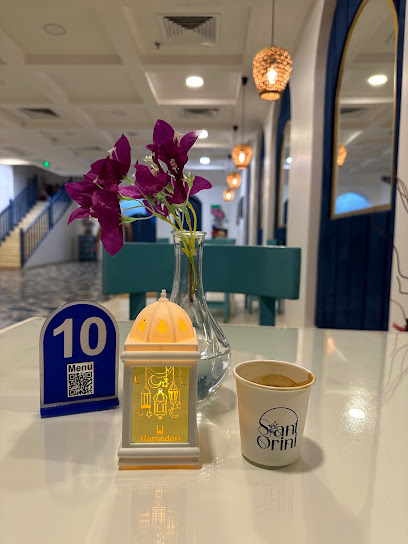
كافتيرا باب نجد
Discover the rich flavors of كافتيرا باب نجد, a culinary haven in Arar offering a delightful mix of traditional and modern dishes.
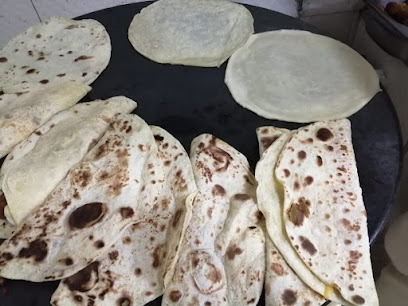
مطعم جرة سبأ
Discover the rich flavors of Arabian cuisine at مطعم جرة سبأ, where every dish tells a story of tradition and taste.
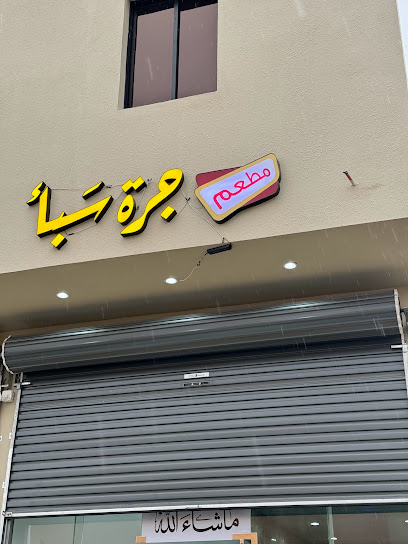
Local Phrases
-
- Helloمرحبا
[marhaban] - Goodbyeوداعا
[wadaeana] - Yesنعم
[naam] - Noلا
[laa] - Please/You're welcomeمن فضلك/على الرحب والسعة
[min fadlik/alaa ar-rahb was-sa'ah] - Thank youشكرا
[shukran] - Excuse me/Sorryعذرا
[udhran] - How are you?كيف حالك؟
[kayfa halak?] - Fine. And you?بخير. وأنت؟
[bikhair. wa'ant?] - Do you speak English?هل تتحدث الإنجليزية؟
[hal tatahadath al-inglizia?] - I don't understandأنا لا أفهم
[ana la afham]
- Helloمرحبا
-
- I'd like to see the menu, pleaseأريد أن أرى القائمة، من فضلك
[uriidu an ara al-qa'imah, min fadlik] - I don't eat meatأنا لا آكل اللحم
[ana la aakulu al-lahm] - Cheers!في صحتك!
[fi sahtak!] - I would like to pay, pleaseأريد أن أدفع، من فضلك
[uriidu an adfa', min fadlik]
- I'd like to see the menu, pleaseأريد أن أرى القائمة، من فضلك
-
- Help!النجدة!
[al-najdah!] - Go away!انصرف!
[insarif!] - Call the Police!اتصل بالشرطة!
[itassal bialshurta!] - Call a doctor!اتصل بطبيب!
[itassal bittabib!] - I'm lostلقد ضللت
[laqad dalaltu] - I'm illأنا مريض
[ana mareed]
- Help!النجدة!
-
- I'd like to buy...أريد أن أشتري...
[uriidu an ashtari...] - I'm just lookingأنا فقط أتطلع
[ana faqat atatallu] - How much is it?كم سعره؟
[kam sa'ruh?] - That's too expensiveهذا غالي جدا
[hatha ghali jidan] - Can you lower the price?هل يمكنك خفض السعر؟
[hal yumkinuka khaafid al-sa'r?]
- I'd like to buy...أريد أن أشتري...
-
- What time is it?كم الساعة؟
[kam al-saa'ah?] - It's one o'clockالساعة الواحدة
[al-saa'ah al-wahidah] - Half past (10)الساعة العاشرة والنصف
[al-saa'ah al-aashirah wan-nusf] - Morningالصباح
[al-sabah] - Afternoonالظهر
[al-dhuhr] - Eveningالمساء
[al-masaa] - Yesterdayأمس
[ams] - Todayاليوم
[al-yawm] - Tomorrowغدا
[ghadan] - 1واحد
[wahid] - 2اثنان
[ithnan] - 3ثلاثة
[thalathah] - 4أربعة
[arba'ah] - 5خمسة
[khamsah] - 6ستة
[sitah] - 7سبعة
[sab'ah] - 8ثمانية
[thamaania] - 9تسعة
[tis'ah] - 10عشرة
[asharah]
- What time is it?كم الساعة؟
-
- Where's a/the...?أين يوجد...؟
[ayn yuwajid...?] - What's the address?ما هو العنوان؟
[maa huwa al-anaan?] - Can you show me (on the map)?هل يمكنك أن تريني (على الخريطة)؟
[hal yumkinuka an tureeni (ala al-kharitah)?] - When's the next (bus)?متى يأتي الحافلة القادمة؟
[mata yaati al-hafilah al-qadimah?] - A ticket (to ....)تذكرة (إلى ...)
[tadhkirah (ila ...)]
- Where's a/the...?أين يوجد...؟
History of Arar
-
Arar's history stretches back to prehistoric times, with archaeological evidence suggesting human activity in the region for thousands of years. Ancient tools and pottery shards discovered in the area point to early human settlements that thrived in the fertile valleys and oases.
-
During the pre-Islamic era, Arar served as a vital stop along the ancient caravan routes that traversed the Arabian Peninsula. These trade routes connected the southern parts of Arabia with Mesopotamia and the Levant, facilitating the exchange of goods such as spices, incense, and textiles.
-
With the advent of Islam in the 7th century, Arar and the surrounding region became part of the expanding Islamic Caliphate. The area's strategic location made it a key point for the movement of armies and the spread of Islamic culture and religion.
-
In the 16th century, the Ottoman Empire extended its control over the Arabian Peninsula, including Arar. The Ottomans established administrative structures and military outposts in the region, leaving a lasting impact on local governance and architecture.
-
The discovery of oil in the mid-20th century transformed Arar from a modest town into a thriving city. The influx of wealth and modernization brought new infrastructure, including roads, schools, and hospitals, drastically improving the quality of life for its residents.
-
Despite rapid modernization, Arar has managed to preserve its rich cultural heritage. Traditional Bedouin customs, such as poetry, music, and camel breeding, remain an integral part of the local culture. The city also hosts several cultural festivals that celebrate the region's history and traditions.
-
Arar's location near the Iraqi border has made it an important geopolitical hub. The city plays a crucial role in cross-border trade and diplomacy, serving as a gateway between Saudi Arabia and Iraq.
Arar Essentials
-
Arar is located in the Northern Borders Province of Saudi Arabia. The closest airport is Arar Domestic Airport (RAE), which has flights connecting to major cities like Riyadh, Jeddah, and Dammam. International travelers can fly into King Khalid International Airport (RUH) in Riyadh or King Abdulaziz International Airport (JED) in Jeddah and then take a domestic flight to Arar. Alternatively, you can reach Arar by road; it is well-connected by highways from various cities in Saudi Arabia.
-
In Arar, taxis are the most common mode of transport and are readily available. It's advisable to negotiate the fare before starting your journey. For those who prefer self-driving, car rental services are available at the airport and in the city. Public buses operate within the city and connect to nearby towns, although their schedules may be less frequent. Walking is also an option for short distances within the city center.
-
The official currency in Saudi Arabia is the Saudi Riyal (SAR). Credit and debit cards are widely accepted in hotels, restaurants, and larger shops. However, it is advisable to carry some cash for smaller establishments, local markets, and taxis. ATMs are available throughout Arar, and currency exchange services can be found at the airport and in major banks.
-
Arar is generally a safe city for tourists. However, it is always prudent to take standard precautions such as avoiding poorly lit areas at night and keeping a close watch on your belongings in crowded places. There are no specific areas in Arar known for high crime rates targeting tourists, but staying vigilant and aware of your surroundings is always recommended.
-
In case of an emergency, dial 911 for immediate assistance. Arar has medical facilities and hospitals equipped to handle emergencies. It's advisable to have travel insurance that covers medical emergencies. Pharmacies are available in the city for over-the-counter medications. The local police station is also accessible for any legal or safety concerns.
-
Fashion: Do dress modestly; men and women should avoid wearing shorts and sleeveless tops in public. Women should wear an abaya, and a headscarf is recommended. Religion: Do respect Islamic customs and prayer times. Avoid public displays of affection and refrain from eating or drinking in public during the holy month of Ramadan. Public Transport: Do be courteous and offer your seat to elderly passengers. Avoid loud conversations and eating on public transport. Greetings: Do greet people with 'As-salamu alaykum' (peace be upon you). A handshake is acceptable for men; women should wait for a man to extend his hand first. Eating & Drinking: Do try local dishes and accept food and drink offerings graciously. Don't refuse hospitality, as it may be considered impolite.
-
To experience Arar like a local, visit the traditional souks where you can buy local crafts and fresh produce. Engage with the locals; they are often very hospitable and willing to share their culture and traditions. Don't miss visiting the local parks and historical sites, such as the Arar Museum, to gain insight into the region's history and heritage. For a unique experience, try the traditional Bedouin cuisine at one of the local eateries.
Trending Landmark in Arar
-
Women Market
-
Valley Mall
-
Le Park Concord Arar
-
Al Bustan Crown Hotel 2
-
Abdullah Bin Abdul Aziz Bin Musaed Mosque
-
سفوري لاند | Safforiland
-
متنزه و ممشى المساعدية
-
Eid Prayer Area
-
Arar Tower
-
منتزه معيله البري
-
برج الشمال
-
نافورة الخمسين
-
مجسم الكره الأرضية
-
محطة قديمه مهجوره من ايام التابلاين
-
Museum arar - northern border
Nearby Cities to Arar
-
Things To Do in Sakakah
-
Things To Do in Najaf
-
Things To Do in Karbala
-
Things To Do in Hail
-
Things To Do in Baghdad
-
Things To Do in Azraq
-
Things To Do in Mafraq
-
Things To Do in Amman
-
Things To Do in Madaba
-
Things To Do in Kerak
-
Things To Do in Jerash
-
Things To Do in Ma'an
-
Things To Do in Salt
-
Things To Do in Tafilah
-
Things To Do in Tabuk







